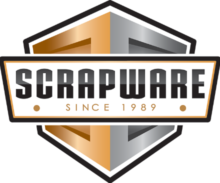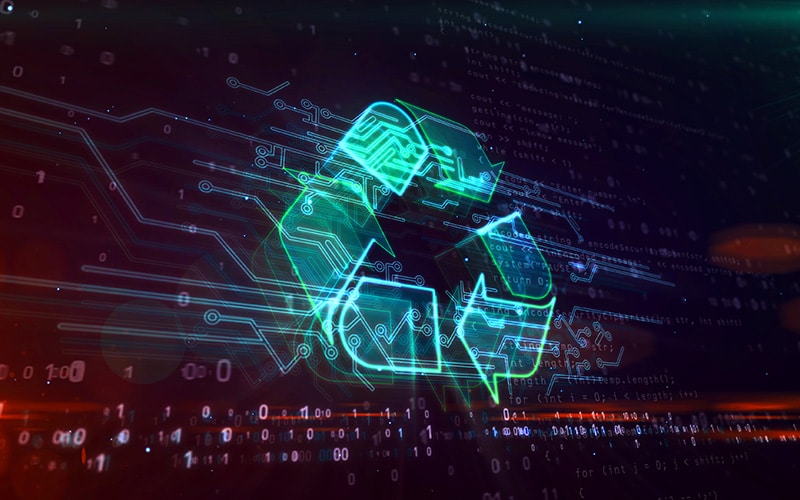Software is an important investment for scrap metal recycling companies to boost efficiency and profitability.
Unlike yard equipment or a truck fleet, the intangible nature of software can make choosing the right recycling software solution challenging.
Below are 11 tips to help recycling companies choose the best software for their business.
1. Assess your needs – Recycling companies should outline for potential software vendors the needs that must be fulfilled with a new software solution. Important considerations include: how many employees will be using the software, how many yards will the software be serving, are there unique state and local laws you must comply with, does your company have plans to expand in the future, are many employees working remotely?
2. Remember your software is an investment – Like state-of-the-art yard equipment, good software will improve your company’s ability to increase profitability and return on investment (ROI). For this reason, it is important not to choose a software based solely on its price, because that can lead to a choice that is not the best fit for your company. Upgrading to a better software in the future is an expensive change to make, so it is important when choosing software to make the best decision based on a variety of other factors in addition to price.
3. Evaluate the database – A critical factor to consider when choosing a recycling software system is the product’s database. It is critical to have an underlying database produced and supported by a major technology company like Oracle or Microsoft. The database should be robust and guaranteed to be supported through many years of regular updates. A recycling company should never purchase a software product running on an obscure database.
4. Discuss Customer Service – One of the most measurable, tangible benefits of software will be how well it provides support to your company and employees. Make sure to consider factors such as: whether you must make an appointment for technical support, or can you simply contact tech support anytime? What channels can you use for tech support? Can you call, email and/or text requests for help? What are the operating hours for tech support options? Do they match your time zone needs, and can you get after hours technical support? How will training be conducted and what is the time frame for implementation?
5. Learn about Hardware – Make sure you can buy hardware on the open market if you prefer. Your options are limited if you are required to purchase hardware through your software company. While your software provider may offer that as an option, you should not be required to purchase hardware from or through a software company. Additionally, your software provider should support high quality, reliable, name brand hardware. Implementing new software with hardware is a significant investment, but it is short-sighted to try to cut corners by buying cheap hardware. Low-quality equipment and hardware will end up costing more in the future when it goes down on the job and needs replacement.
6. Implement before your Customize – One frequent mistake made when purchasing scrap metal recycling software is immediate over-customization. This mistake can be avoided by installing and using the software first, and then adding custom features later. Customization is very important for some companies who may have a unique process or procedure. However, it is best to first run the product “as is” to determine what real gaps exist. After using the new software, the company and employees may find it adaptable to their business. It will take more time and incur unnecessary costs to try to first customize the software if the user does not have a full grasp of its functionality. A user can better understand their needs once they know the product better. If after using the product it is determined that customization is necessary, the customization can be more precisely designed and it will be faster and less expensive to develop.
7. Don’t Pay Recurring Customization Fees – Once you have installed a software product, there will be a monthly service fee to host the product, maintain it and support it. Customized features may need to be repeatedly updated as the software updates in subsequent versions. A recycler, however, should not be asked to pay multiple times to update customized features in the software as it is updated from version to version. Once a customization is made, there should be no additional costs outside the regular monthly maintenance fee.
8. Know Where your Cloud Data Center is located – If you are purchasing a cloud-based software product, make sure you know the location and details of the data center hosting the software. It is critical to have your software hosted in a reputable data center and that this arrangement is scalable, meaning capacity can continually be added with no limitations. It is not a long-term, desirable situation to have your software vendor do their own software hosting in the cloud. It is far better to have your software hosted by a respected technology company that can protect your data with multiple data centers and strong tech expertise and resources.
9. Confirm your Operating Systems – Confirm the product runs on a current operating system for both the software and any hardware you may buy. You do not want to make a significant new investment in a product that will soon be obsolete and not supported. Whatever you buy should be supported for many years down the road.
10. Choose industry-specific software – For scrap metal recyclers, it is beneficial to use software developed specifically for their industry. Those developing the software should have a keen understanding of the nature of the scrap metal recycling business and its industry workflow. The scrap metal recycling industry must comply with federal, state and local laws that are unique to its business. For this reason, software developed specifically for them will be superior to an off-the-shelf solution that has been tweaked for the scrap metal recycling business.
11. Talk to References – It is important to talk to other users of the software to check references. However, not all references are equal. Make sure you speak with a reference that is like your company. Is this reference about the same size, do they have about the same number of yards and the same needs as your company? Talk to them personally and ask them to share their experiences.
ScrapWare Corp. has provided software to the scrap metal recycling industry for more than 30 years. During that time its software has continually evolved to incorporate advances in technology. Decades of experience with software designed specifically for scrap metal recyclers has helped develop the above list.
Using these guidelines can help you can make the best decision to choose the recycling software solution for your company.
About ScrapWare Corporation: Since 1989, Rockville, Maryland-based ScrapWare Corporation has been the software of choice for the recycling industry. Its ease of installation and simplicity saves users time and money while helping them achieve compliance and maintain accurate business insights. With state-of-the-art functionality that‘s tailored to each organization’s unique requirements, ScrapWare is an advanced dynamic software solution that alleviates the most pressing recycling industry worries. For more information, please call (301) 517-8500 or visit https://www.scrapware.com/.

